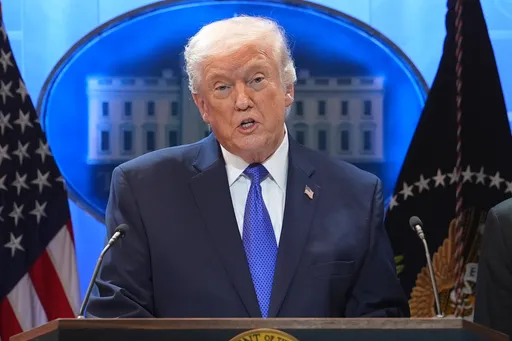Iran’s Foreign Minister, Mohammad Javad Zarif, has defended his controversial leaked interview which was broadcast by the Saudi-funded Iran International TV revealing deep tension between Iran’s diplomacy and the powerful Islamic Revolutionary Guards Corp (IRGC).
Zarif, who is on a regional tour has been called in for questioning by the Tehran Prosecutor and by the Parliamentary Commission for National Security and Foreign Policy. He claims he did the interview in good faith for internal files and as “lessons learnt”.
In the interview Zarif accuses the slain head of Quds Force, Qasem Soleimani, of overpowering foreign policy with his parallel military doctrine. He also accuses the IRGC of concealing the truth from the government on several issues including the downing of the Ukrainian airliner by two missile strikes.
Vatan Emruz Daily close to the IRGC issued a gruesome picture of Qasem Soleimani’s hand covered in debris and blood after the US drone strike killed him in January 2020. Using Zarif’s terminology the title reads: “the price the military paid” for diplomacy.
Tasnim News, regards the creation of what it calls a “dual image between the military and the foreign policy” as an electioneering game by the government.
Yet, it is not very unusual for military and diplomacy to be at odds. The US State Department was famously always at odds with the Pentagon over policy in Afghanistan. Yet in Iran it is unprecedented as it breaks the code of loyalty to the authoritarian structure.
More interesting than the content of the interview is how and by whom it was leaked, and what purpose it could serve in Iran’s changing political landscape with a looming presidential election in June.
The hardline Keyhan newspaper close to Iran’s leader, Ayatollah Ali Khamenei, sees a conspiracy organised by “the pro-west management who has pushed Zarif to suicide in order to save its own skin”. The reference is clearly to President Hassan Rouhani.
President Rouhani, seems to blame the hardliners. He has ordered a probe into what his spokesman, Ali Rabiei, described as “theft” of classified files. Rouhani says the leak was to the “dirtiest Saudi-backed channel” and it was intended to ruin the chances of nuclear talks happening in Vienna.
Hesamoddin Ashena, a close associate of President Hassan Rouhani and the head of the Center for Strategic Studies which was responsible for the classified interview project has resigned. Some claim Rouhani sacked him. Rouhani’s spokesperson replaced Ashena.
The interview was conducted by Saeed Leylaz a close confidante of the late centrist President Akbar Rafsanjani and also of President Rouhani. In fact Rouhani also had close ties — albeit on a different level — with president Rafsanjani. But despite these ties, Leylaz has called for a harsh security response to “this breach of confidentiality”.
Keyhan reserves its main punchline for the news director of Iran International, Ali-Asghar Ramezanpour, who used to be the deputy Minister of Culture to the chief reformist president, Mohammad Khatami.
Keyhan accuses Ramezanpour of using his former network to arrange the leak. But if the editor of a television channel in London is capable of obtaining Iran’s classified documents through his contacts then that doesn’t say much for Iran’s intelligence apparatus.
Speculation is rife. Not a conspiracy, but leaking sensitive information is certainly a political tactic often used around the world before elections.
Perhaps not individuals as such, but it cannot be ruled out that there is a collective last push by many reformist centrist and moderate activists – inside Iran, and in exile – who resent the IRGC total dominance and see little or no chance of survival after June’s presidential elections.
Many inner-circle politicians fear persecution after the elections.
Presidents Rouhani, Rafsanjani, and Khatami before him all tried without success to curtail the power of the IRGC. Rouhani wanted to make way for foreign deals and investment by limiting the business role taken on by the IRGC. He imposed laws to block IRGC from competing with the private sector. Yet the IRGC never retrieved.
Since the harsh crackdown on protestors in November 2019 and the shooting down of the Ukrainian Airliner in January 2020, in which 176 passengers and crew were killed, resentment towards the IRGC has reached new heights, especially within the young and educated who form an important voter bloc.
Although low turnout is predicted in elections, Zarif’s interview may trigger higher participation. More centrist and reformist politicians have already said they will be candidates and heated debates are taking place on Clubhouse every day since the leaked interview.
Zarif would certainly now have a better chance if he becomes a candidate.
Yet, we must also remind ourselves that the boldest criticism of the establishment often happens before elections. President Rouhani was bravely critical when he created the “Hope” for moderation motto to win in 2013.
Whatever the cause of the leak, or whoever might have organised it with whatever motive, the interview and its fallout is concrete proof that the establishment in Iran, despite its spin to the contrary, is not united and that serious divisions are tearing it apart from within.























